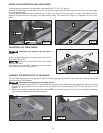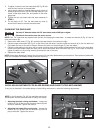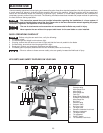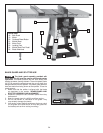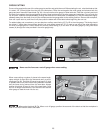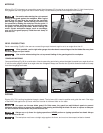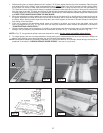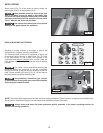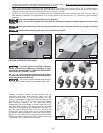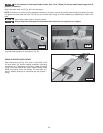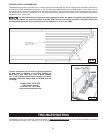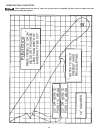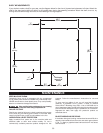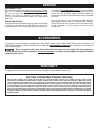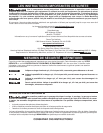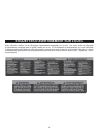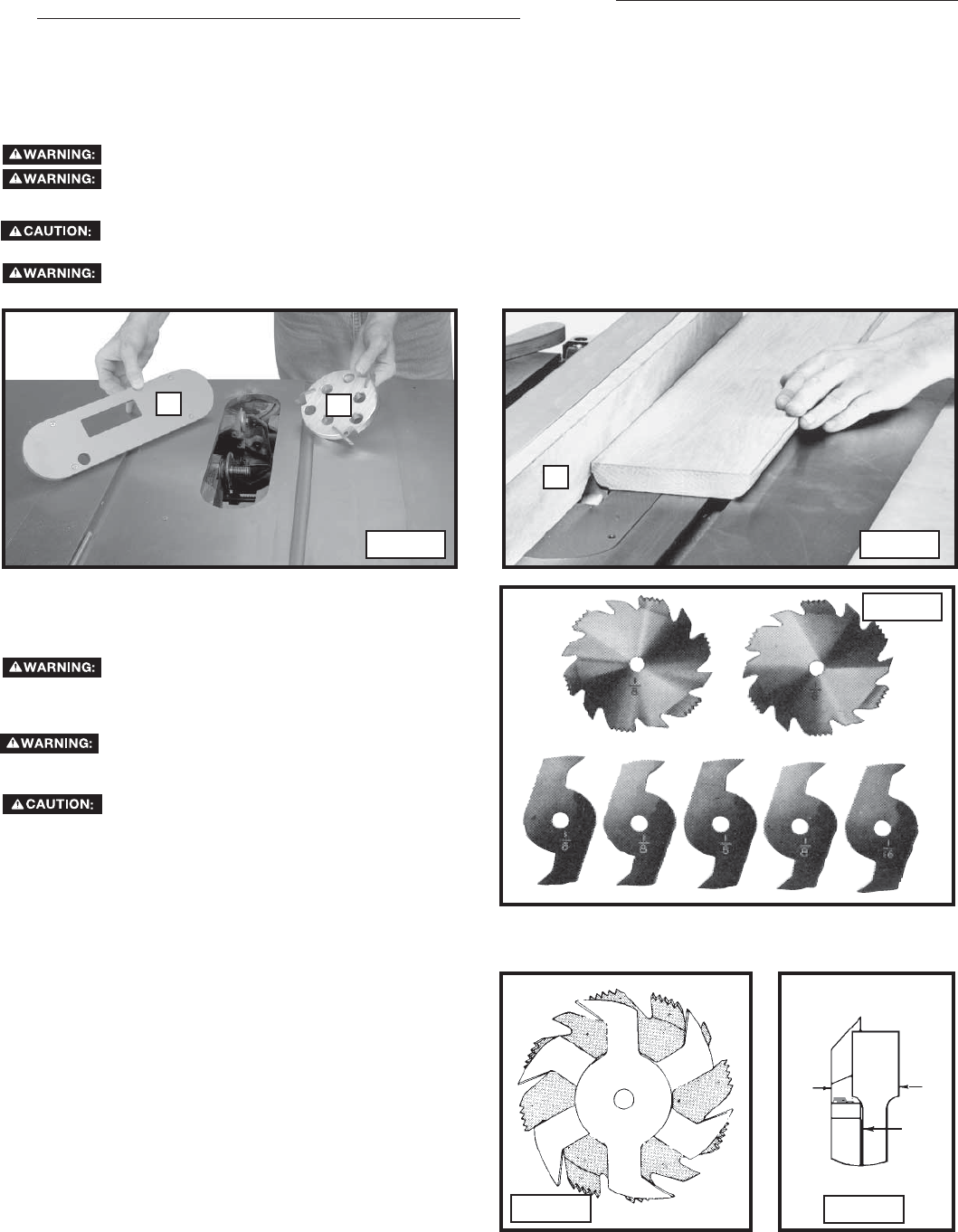
29
1. You can easily attach a moulding cutterhead (A) Fig. 77 to the saw arbor. Also, you must use the accessory moulding
cutterhead table insert (B) in place of the standard table insert.
2. When using the moulding cutterhead, add wood-facing (C) to the face of the rip fence (Fig. 78). The wood-facing is
attached to the fence with wood screws through holes which must be drilled in the fence. Stock that is 3/4" inch thick is
suitable for most work, although an occasional job may require 1" facing.
3. Position the wood-facing over the cutterhead with the cutterhead below the surface of the table. Turn the saw on
and raise the cutterhead. The cutterhead will cut its own groove in the wood-facing. Fig. 78 shows a typical moulding
operation.
Never use a moulding cutterhead in a bevel position.
Never run the stock between the fence and the moulding cutterhead. Irregular-shaped wood will cause
kickback.
Give special attention to the grain direction. Make all cuts in the same direction as the grain whenever
possible.
Always install the blade guard after the operation is complete.
The blade guard and splitter assembly
cannot be used when dadoing or moulding. It must
be removed as described in “USING AN ACCESSORY
MOULDING CUTTERHEAD” section.
Use pushsticks, hold-downs, jigs, fixtures,
or featherboards to help guide and control the workpiece
when the guard cannot be used.
The accessory dado head set table insert (B)
Fig. 77 must be used in place of the standard table insert.
USING AN ACCESSORY DADO HEAD
Dadoing is cutting a rabbet or wide groove into the
workpiece. Most dado head sets are made up of two
outside saws and four or five inside cutters, (Fig. 80).
Various combinations of saws and cutters are used to cut
grooves from 1/8" to 13/16" for use in shelving, making
joints, tenoning, grooving, etc. The cutters are heavily
swaged and must be arranged so that the teeth do not hit
each other during rotation. The heavy portion of the cutters
should fall in the gullets of the outside saws (Fig. 80). The
saw and cutter overlap is shown in Fig. 81 - (A) being the
outside saw, (B) an inside cutter, and (C) a paper washer
or washers, used as needed to control the exact width of
groove. A 1/4"groove is cut by using the two outside saws.
Position the teeth of the saws so that the raker on one saw
is beside the cutting teeth on the other saw.
A
B
C
Fig. 77
C
Fig. 78
A
B
Fig. 79
Fig. 80
Fig. 81



